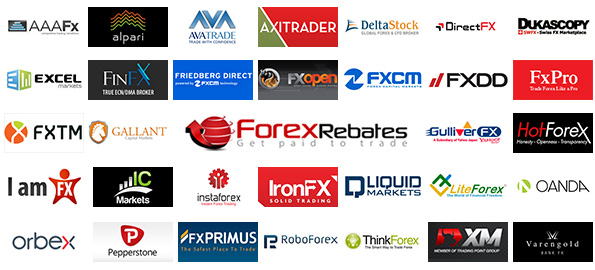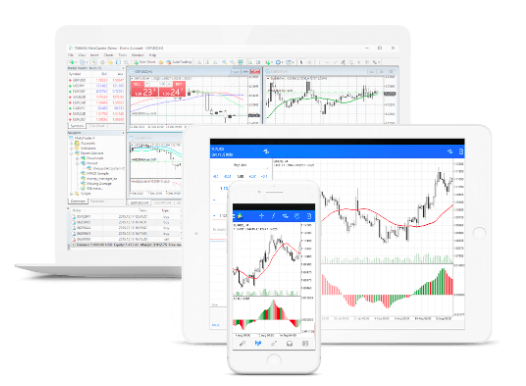When it comes to Forex trading, choosing the right broker can be the difference between success and failure. A broker acts as your intermediary, facilitating your trades and providing access to the Forex market. But with so many brokers out there, how do you choose the right one? In this article, we’ll explore the key factors to consider when choosing a Forex broker, the different types of brokers available, and how to match the right broker to your trading strategy.

Key Factors to Consider When Choosing a Forex Broker
Security and regulation: The first and foremost factor to consider when choosing a Forex broker is security and regulation. You want to ensure that your broker is reputable, trustworthy, and regulated by a recognized authority. A regulated broker ensures that your funds are safe and that they operate within legal guidelines.
Trading platforms and tools: The next factor to consider is the trading platform and tools that the broker offers. The trading platform should be user-friendly and offer a range of analytical tools, indicators, and charting options. Look for a platform that suits your trading style and needs.
Commissions and fees: Commissions and fees can vary greatly among Forex brokers. You want to choose a broker that offers competitive pricing, low spreads, and transparent fees. Be wary of brokers that charge hidden fees or have high minimum deposit requirements.
Customer service and support: In the fast-paced world of Forex trading, you need a broker that offers reliable customer service and support. Look for a broker that provides multiple channels of communication, including phone, email, and live chat. They should also have a responsive customer support team available 24/7.
Availability of educational resources: A good Forex broker should offer a range of educational resources, including webinars, tutorials, and market analysis. These resources can help you to develop your trading skills and make better trading decisions.

Different types of Forex brokers
Dealing desk vs. no dealing desk brokers: Dealing desk brokers act as market makers, taking the opposite side of your trades. No dealing desk brokers, on the other hand, offer direct access to the market and do not take the opposite side of your trades. Dealing desk brokers can offer fixed spreads and instant execution, while no dealing desk brokers offer variable spreads and may have slippage during high volatility.
Market makers vs. ECN brokers: Market makers are brokers that offer liquidity from their own pool of funds, while ECN brokers offer access to a network of liquidity providers. Market makers can offer tighter spreads, but may have a conflict of interest as they take the opposite side of your trades. ECN brokers offer transparent pricing, but spreads may be wider during low liquidity periods.
Pros and cons of each type: There are pros and cons to each type of broker, and the choice ultimately depends on your trading style and preferences. Dealing desk brokers may be better suited for beginners or traders who require instant execution, while no dealing desk brokers may be better suited for experienced traders or those who require direct market access.
Matching the Broker To Your Trading Strategy
Scalping vs. swing trading vs. position trading: The trading strategy you use will greatly impact the type of broker you choose. Scalping, for example, requires a broker with low spreads and fast execution times, while swing trading may require a broker with a wider range of trading instruments. Position trading may require a broker with a long-term focus and competitive overnight swap rates.
The importance of trading style in broker selection: Matching the right broker to your trading style is crucial for success. You want a broker that caters to your specific needs and offers the tools and resources that align with your trading strategy.
Recommended brokers for different trading strategies: Some brokers specialize in certain types of trading strategies. For example, if you are a scalper, you may want to consider brokers that offer low spreads and fast execution times, such as IC Markets or Pepperstone. If you are a swing trader, you may want to consider brokers that offer a wide range of trading instruments, such as eToro or XM.
| Trading Strategy | Recommended Brokers |
|---|---|
| Scalping | IC Markets, Pepperstone, FBS |
| Swing Trading | eToro, XM, FBS |
| Position Trading | OANDA, IG, FBS |
Real-life Examples and Statistics
Success stories and case studies of traders using different brokers: One of the best ways to choose a Forex broker is to look at real-life examples and success stories. Many brokers offer case studies of successful traders on their platform, or you can research online to find examples. Look for traders who have a similar trading strategy to yours and see which brokers they recommend.
Comparative analysis of broker performance: Another way to choose a Forex broker is to look at comparative analysis of broker performance. There are many websites that offer side-by-side comparisons of different brokers, based on factors such as spreads, commissions, and trading instruments. This can help you to narrow down your options and choose the best broker for your needs.
| Broker | Spreads (avg.)* | Commissions |
|---|---|---|
| IC Markets | 0.1 pips | $7 per lot |
| Pepperstone | 0.1 pips | $7 per lot |
| eToro | 1.0 pips | No commission (spread mark-up) |
| XM | 1.7 pips | No commission |
| OANDA | 1.4 pips | No commission |
| IG | 0.6 pips | $7 per lot |
| FBS | 0.5 pips | No commission |
Conclusion
Choosing the right Forex broker is crucial for success in the world of Forex trading. When choosing a broker, you want to consider factors such as security and regulation, trading platforms and tools, commissions and fees, customer service and support, and the availability of educational resources. You also want to consider the different types of brokers available and match the broker to your trading strategy. By doing your research and choosing the right broker, you can set yourself up for success in the world of Forex trading.

